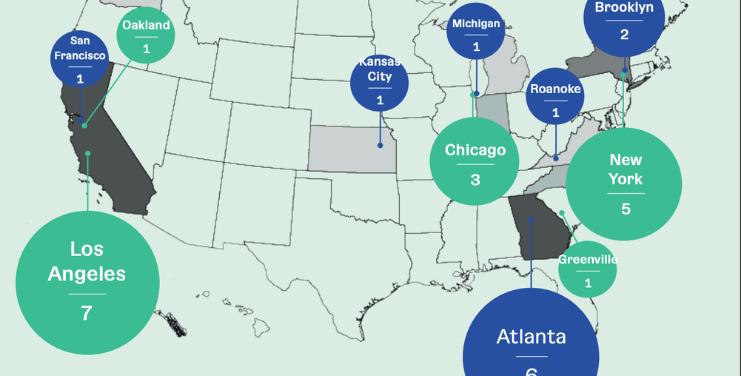Global think tank Coqual recently released new research on building equity in the workplace across areas of performance evaluations, promotions and pay. In a three-part series, Coqual, which helps leaders design equitable workspaces, took a deep dive into the process of career outcomes, providing guidance on fairness and creating an environment of psychological safety for employees that companies and leaders can implement to strengthen their policies and workspace equity.
The report found that, One in five Black and Latinx workers believe the time it takes for them to be promoted exceeds the time it takes their non-Black coworkers. Stalled promotions were also prevalent among disabled workers. Twenty-five percent of disabled workers feeling like their promotions were stalled, compared to 16 percent of non-disability workers overall. For Black professionals, organizational goals to promote and train people of color and/or women were the strongest predictors of fairness in the promotional process.
The report covers little in policy impact, pre-existing worker policies or companies in overall structure in policymaking. President Biden’s executive order of advancing racial equity in the federal government is one of few national orders addressing workforce equity, implementing policies that promise equity to people of color by assessing the current policies and management officials studies the impact of those policies.
While a recent executive order comes closer to addressing and advancing racial equity in the federal workforce, the order is restricted to U.S. government workforce areas. Successfully creating a diverse federal workplace could serve as an example for private industries, but without clear mandates for more Black professionals in executive roles, there will continue to be few Black Americans occupying C-suite roles within companies.
Black Americans hold eight percent of 18,564 managerial positions. Out of 1,669 workers, Black Americans occupy 4.3 percent of chief executive positions, according to the U.S. Bureau of Labor Statistics 2020 Current Population Survey,
There are even fewer Black women executives. Among the 19 Black CEOs that lead Fortune 500 companies, only two are Black women. When interim CEOs and those with a tenure of under one year are not counted, the number of Black Fortune 500 CEOs drops to 15.
Black Americans in the private sector occupy 12 percent of entry-level positions but less than seven percent of management roles, according to a Mckinsey report. The low management rates and higher attrition rates are limiting representation rates in higher positions.
There are areas of workforce improvement despite the glaring disparities Black professionals face. A Racial Equity Institute (REI) report found the U.S. was heavily built on hierarchy standards that only be addressed through groundwater management.
Businesses and universities are implementing inclusion programs to advance future Black professionals to C-suite positions. Notre Dame’s Mendoza College of Business offered a three-day immersion in accounting and finance principles with finance teaching professor Walt Clements under the Diversity in Leadership program at Marian University in Indianapolis.
Companies have taken on diversity, equity and inclusion (DEI) programs to advance in policy commitments, training and regular management feedback. Nu Skin Enterprises, a global direct selling company, created an Inclusion counsel which consists of a team of leaders working to incorporate DEI as a crucial part of employee experiences and build a culture of belonging. Nu Skin’s DEI strategic pillars also include attracting and developing diverse leaders and creating a safe work environment.
Hollister Staffing, a women-owned staffing consultancy, created Hollister’s Diversity & Inclusion Internal Hiring Committee where the team is held accountable for finding and hiring diverse workers. Hollister Staffing signed the CEO Action for Diversity & Inclusion™ pledge, where CEO, Kip Hollister is committing herself and staff to promote diversity in the workplace.
Though individual companies and colleges are providing more opportunities for Black workers to advance to executive positions, there needs to be more U.S. government policies specific to helping more Black Americans reach C-suite levels.








